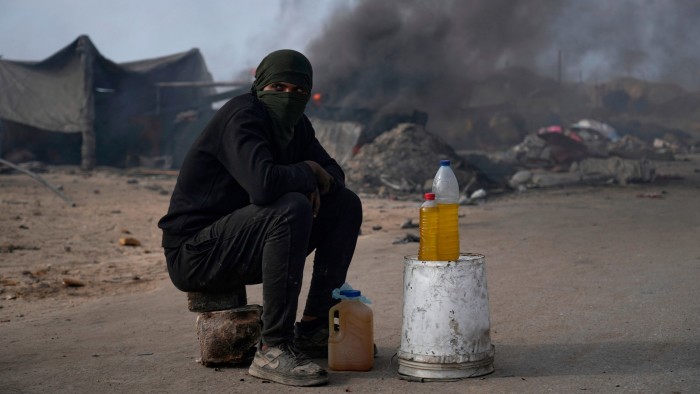Fuel stocks in Gaza have been almost completely depleted, UN officials have said, causing the collapse of basic services as an Israeli-imposed siege blocks the entry of most humanitarian aid.
“If this is not addressed, we will see immediate loss of life,” said Olga Cherevko, spokesperson for the UN Office for the Coordination of Humanitarian Affairs, OCHA.
“We’ve basically run out of fuel at this point. Everything we have inside Gaza has been allocated and distributed. Unless more fuel enters, the entire humanitarian response could grind to a halt.”
Water, sanitation and health facilities in the shattered enclave have been gradually shutting down, while those hospitals and medical points still functioning were at risk of closure, said Cherevko.
António Guterres, UN Secretary General, warned on Thursday that “the last lifelines for survival [in Gaza] are being cut off. Without an urgent influx of fuel, incubators will shut down, ambulances will be unable to reach the injured and sick, and water cannot be purified.”
Cherevko said there would be “a massive, massive impact on health”. Some 2.1mn people are trapped in Gaza under daily bombardment and under starvation conditions, following months in which Israel has permitted only a trickle of aid to enter.
Hundreds of thousands of displaced people live in makeshift shelters, surrounded by rotting garbage and sewage. Most buildings and infrastructure have been destroyed.
Al-Shifa hospital in Gaza City, the largest in the strip, suspended kidney dialysis for its patients on Tuesday because of the fuel shortage. It resumed a reduced service on Wednesday after the World Health Organization delivered 3,000 litres of diesel from a reserve in north Gaza, the WHO said.

But the UN agency said the situation remained perilous.
“One operating theatre is down, dialysis sessions have been cut from 3 to 2 days per week per patient, and the oxygen plant has stopped, forcing a reliance on cylinders,” the WHO said, adding that the fuel delivered was “enough for a few days”.
The entry of fuel and cooking gas into Gaza has been limited for most of the 21-month war, after previously entering via the UN and commercial providers.
Families have been forced to buy firewood to cook and have been burning scavenged materials from destroyed homes, including wood, cardboard and plastic.
Cherevko said Gazans have been able to “refine fuel” from plastic, which they use to run tuk-tuks and motorbikes.
“It’s not usable for most purposes, and it’s extremely damaging to the environment,” she said. “But if you’re driving to Gaza City, you’ll see along the beach all these stations that have been set up to produce this fuel, and it’s . . . two kilometres of black smoke that you pass through.”
She said the UN had been rationing its own fuel supplies to make them last longer, but that certain equipment for water and sanitation operations had to be kept running or would be “damaged to the point of no return, so we are having to prioritise those types of operations just so that we don’t have a full shutdown”.
But she added: “We’re already too late.”
Fuel shortages have also reduced waste collection, resulting in piles of garbage threatening a public health crisis, according to OCHA.
The organisation said several major stormwater retention basins had been receiving raw sewage because of the collapse of the wastewater system. Attached pumping stations lack fuel to discharge this water to the sea, causing sewage levels to rise and risk overflowing into nearby shelters.
The lack of fuel to operate wells and desalination plants is set to cause a “man-made drought”, Unicef, the UN children’s fund, warned last month, saying that only 40 per cent of drinking water facilities were functioning.
The UN said Israel had this week denied it permission to move some remaining fuel stocks from the south to north. The Israeli military referred questions on the issue to COGAT, an arm of the defence ministry. COGAT did not respond to a request for comment.
“There are very, very scarce fuel reserves in Gaza, but millions of litres of fuel outside of Gaza are trying to get in,” said Rachael Cummings, humanitarian director for Save the Children in Gaza.
“In Gaza, there is open sewage in the streets, and a desperation of people for clean drinking water. There is an increase in the number of children who are malnourished, the number of children who have diarrhoea. That is literally a deadly combination.
“So fuel is literally a life-saving intervention that we need to prioritise.”
Additional reporting by Mehul Srivastava in London



